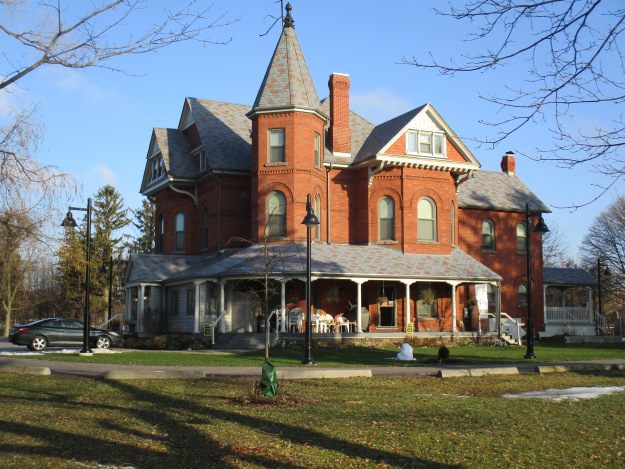Gambling Rehab Centre
- Gambling Rehab Centre London
- Gambling Rehab Center Near Me
- Gambling Rehab Centre Singapore
- Gambling Rehab Center
Rehabs.in exists to help people from all over India find relief and treatment for their addictions.The directory of Drug and Alcohol Rehabilitation Centres is a community effort and includes centres from almost every state in India. Top Rated Gambling Addiction Treatment Program. Algamus is a gambling disorder rehab program that treats only gambling addiction. Our gambling-specific addiction treatment program allows patients to discover, experience, and practice important skills needed in order to achieve a successful recovery from their gambling addiction.
Gambling Rehab Centre London
Call 800-481-6320 to speak with an alcohol or drug abuse counselor.Gambling rehabilitation is a serious issue. In this page we will investigate symptoms, causes, effects, and treatment options for gambling addiction . If you or someone you know has a gambling problem, we urge you to seek out gambling rehab centers in your area to find a rehabilitation center near you. Clinics, programs, and treatment options are readily available in your area.
Gambling addiction is a serious problem that affects millions of individuals and their families. Gambling addiction can effectively cause addicts to lose everything that they own and even result in death. Not only does the gambling addict have the potential to suffer from a loss of self respect and happiness, thousands of gambling addicts try to commit suicide every year.
Causes of Gambling Addiction and How Gambling Addiction Begins
Gambling addiction is similar to many other addictions in that it begins with just one high. The difference is that the high from gambling addiction is an adrenaline rush that comes from winning. While not all people who win a bet will become addicted to gambling, certain links can be made to the type of betting and the likelihood of becoming addicted to the odds.
In most cases, individuals who play slow progression and skill based games such as chess or poker will progress towards addiction much more slowly than those who play quick progression games such as slots. These type of instant gratification games are often what creates a gambling addict because the addict can play the game fast and the win / lose situation is instant. There’s no waiting and wondering and gratification is instant when there’s a win.
Most gambling addicts will gamble more and more during a winning phase which is what signifies a rapid alteration into a compulsive gambling addiction. The gambling addict will discuss winning more often and try to use the win as justification for the excessive gambling. During the earliest (winning) phases of a gambling addiction most people will not notice how bad the addiction is until additional (negative) side effects are experienced.
Gambling Rehab Center Near Me
Effects of Gambling Addiction
The negative effects of gambling addiction will sometimes take a long time to surface. Isolation begins to set in as the gambling addict finds more solace in gambling than in friends, family members, and life activities. Financial burdens begin to surface as the gambling addict spends more and more money on gambling and bets in an effort to win back lost money.
Often times, gambling addicts will resort to loans or crimes in order to have the funds necessary to continue the gambling. For some gambling addicts, the financial burdens of gambling become so severe that the crimes they commit result in the addict being incarcerated, losing their job, facing loss of friends and family and they can even face additional psychological problems.
Many individuals who suffer from gambling addiction will eventually begin to drink or use drugs in an effort to heal themselves from the depression and upset associated with the gambling. Deteriorating family relationships, financial situations and a number of other home and work related issues can cause a gambling addict to attempt to cover up or resolve the problem with drugs or alcohol. The drugs and alcohol abuse will then become the escape that provides the comfort that gambling once offered.
Ultimately, gambling addicts suffer from anxiety and depression as a result of the gambling addiction. During the final stages of gambling addiction in which time the addiction is most severe, depression can cause the gambling addict to have suicidal thoughts due to a complete lack of self respect. IN fact, nearly 1/3 of all gambling addicts will try to kill themselves in an effort to eliminate the depression and anxiety felt as a result of the gambling addiciton.
Gambling Addiction Rehab and Treatment for Gambling Addiction
Gambling addition rehab focuses on treating the fulfillment issues that can be associated to gambling. Treatment for gambling addiction is generally similar to the treatment for many drug addictions. The ultimate step toward treatment for gambling addiction is acknowledging that there is a problem. For a gambling addict to actually admit that they do have a problem with gambling takes extreme strength and courage.
Gambling rehab centers provide the support and care necessary to help gambling addicts get through the difficult recovery process. Some gambling rehab centers provide cognitive-behavioral therapy for gambling which focuses on changing the unhealthy habits and behaviors that gambling addicts take part in. Such therapy will also help the gambling addict to understand how to deal with the urge to gamble, cope with the uncomfortable emotional effects of gambling, and ultimately solve the various problems in work, life and home that have been cause by the gambling addiction.
Gambling addiction rehab centers provide support for gambling addicts who want to stop gambling but need help to quit. They can teach the gambling addict how to effectively spend time doing other things to occupy their time besides gambling. In time, the urge to gamble may completely go away or at least become weak enough to easily resist. Gambling addiction is a potentially deadly condition that effects the gambling addict and those directly and indirectly associated with the addict. Gambling rehab centers are available to help.
A new UK National Health Service (NHS) backed Primary Care Gambling Service (PCGS) that provides help for adults who have problems related to gambling has opened in London.
Developed and funded by Hurley Group, a NHS general practice (GP) partnership, the PCGS will work with the National Gambling Treatment Service to to help those suffering from gambling related harm.

Gambling Rehab Centre Singapore

Dr Clare Gerada will lead the new service, with support from a multidisciplinary team of mental health nurses, general practicioners, treatment practitioners and therapists.
The PCGS worked with charity GamCare to develop an integrated care pathway, and will also provide training to help GPs identify gambling problems in patients.
“There is evidence that many people who have problems related to gambling are in contact with their GP, but don’t necessarily talk about their gambling,” Dr Gerada said.
“We will be exploring how to identify them, and how to help them get access to the treatment that is right for them. We know from other areas of work that people value the option of getting treatment in primary care settings.”
The service will initially focus on South East London – specifically Lambeth, Southwark, Lewisham, Bexley, Bromley and Greenwich – but plans are in place to expand to other boroughs within the coming months.
Gambling Rehab Center
In addition, the PCGS will develop a competency framework for the treatment of gambling problems in primary care, and will set out the skills and experience needed for practitioners in this field. The Royal College of General Practitioners will support the PCGS with the new project.
“We welcome the development of a competency framework for gambling treatment in primary care,” Michael Mulholland, professional development officer lead for the Royal College of General Practicioners, said. “This will help GPs and other primary care workers to develop their skills in treating people who are harmed through gambling.”
Anna van der Gaag, chair of the Advisory Board for Safer Gambling, added: “This new initiative is very significant in expanding the treatment options for people who have experienced harm from gambling and for their families. We want treatment to be as accessible as possible and to remove the barriers that might exist for people seeking help.
“This is one of a number of initiatives that move us to a more joined up approach and I look forward to the lessons we can learn from this work about how we can scale up provision.”
The announcement comes after GambleAware earlier today (8 July) also set out a number of new initiatives to help promote its Safer Gambling Campaign and the National Gambling Treatment Service.
The funding body's board of trustees also responded to recent calls for changes to the funding of gambling research, education and treatment after questions were raised over the independence of its approach. This saw it look to highlight a lack of industry involvement in determining where it allocates funds, following perceived criticism from a recent report by the House of Lords Gambling Select Committee and a number of leading academics in an open letter to the British Medical Journal.